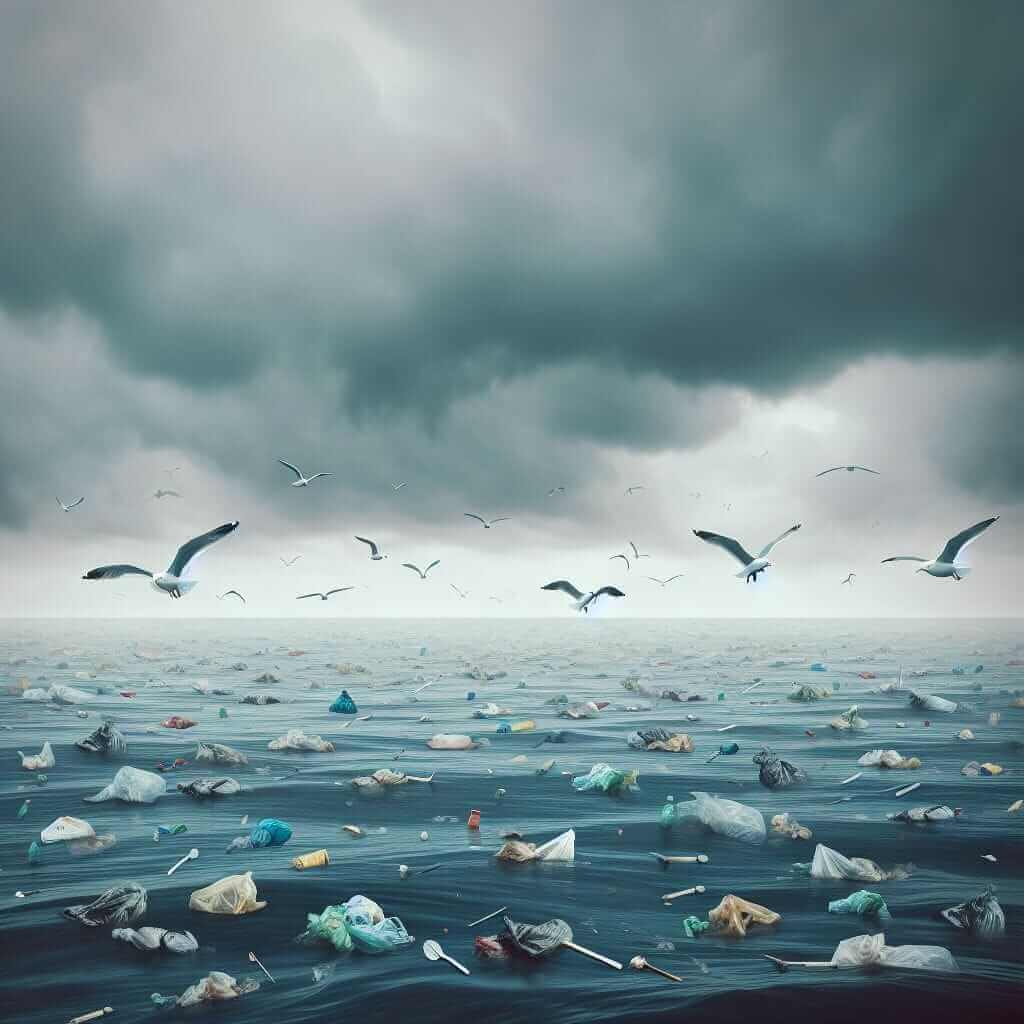The pervasive use of single-use plastics and their detrimental effects on the environment is a hot-button issue that frequently appears in IELTS Writing Task 2. This essay will delve into the multifaceted environmental consequences of single-use plastics and provide a sample answer that meets the requirements of an IELTS band 8 score.
Here are some potential IELTS Writing Task 2 questions related to this topic:
- The widespread use of single-use plastics has severe environmental consequences. What are the most significant impacts, and what measures can be taken to address this issue?
- Some people believe that banning single-use plastics is the only way to solve the environmental problems they cause. Others argue that there are better solutions. Discuss both views and give your opinion.
- The responsibility for reducing single-use plastic pollution lies with both individuals and governments. To what extent do you agree or disagree?
Sample Essay: Single-Use Plastics and Their Environmental Impact
Question: The widespread use of single-use plastics has severe environmental consequences. What are the most significant impacts, and what measures can be taken to address this issue?
Analysis of the Question
This question requires a two-part answer. Firstly, you need to discuss the major environmental consequences of single-use plastics. Secondly, you need to propose solutions to mitigate these problems.
Model Answer
The ubiquitous presence of single-use plastics, from shopping bags to food packaging, has engendered a global environmental crisis. This essay will elucidate the most significant impacts of this phenomenon and propose measures to alleviate the problem.
One of the most alarming consequences of single-use plastics is their contribution to pollution. Due to their non-biodegradable nature, plastic bags and bottles persist in the environment for centuries, accumulating in landfills, clogging waterways, and contaminating ecosystems. Marine life is particularly vulnerable, as animals often mistake plastic debris for food, leading to starvation, suffocation, and entanglement. Moreover, the production of plastics necessitates the extraction and refinement of fossil fuels, exacerbating greenhouse gas emissions and contributing to climate change.

Addressing this multifaceted issue requires a multi-pronged approach. Governments must implement stringent regulations to curb plastic production and consumption. This can be achieved by imposing taxes on plastic bags, banning certain single-use items, and investing in research and development of biodegradable alternatives. Businesses should be encouraged to adopt sustainable packaging solutions, such as using compostable materials or offering incentives for customers who bring their own reusable containers. Furthermore, raising public awareness about the detrimental effects of single-use plastics is paramount. Educational campaigns, social marketing initiatives, and community outreach programs can empower individuals to make informed choices and adopt eco-friendly habits, such as reducing plastic consumption, reusing and recycling whenever possible.
In conclusion, the proliferation of single-use plastics has dire consequences for the environment, contributing to pollution, harming wildlife, and accelerating climate change. Through a combination of government regulations, responsible business practices, and increased public awareness, we can mitigate the detrimental impacts of single-use plastics and pave the way for a more sustainable future. (Word count: 287)
Writing Notes
- Structure: The essay follows a clear structure with an introduction, two main body paragraphs, and a conclusion.
- Topic Sentences: Each paragraph begins with a clear topic sentence that outlines the main idea.
- Linking Words: The essay uses a variety of linking words and phrases to ensure coherence and flow.
- Vocabulary: A wide range of vocabulary related to the environment is used accurately.
Vocabulary
- Ubiquitous (adjective) /juːˈbɪk.wɪ.təs/: Being or seeming to be everywhere at the same time.
- Engender (verb) /ɪnˈdʒen.dər/: To cause something to come into existence.
- Elucidate (verb) /iˈluː.sɪ.deɪt/: To explain something or make something clear.
- Non-biodegradable (adjective) /ˌnɒn.baɪ.əʊ.dɪˈɡreɪ.də.bəl/: Unable to be broken down by bacteria or other natural processes.
- Accumulating (verb) /əˈkjuː.mjə.leɪ.tɪŋ/: Gradually increasing in number or amount over a period of time.
- Contaminating (verb) /kənˈtæm.ɪ.neɪ.tɪŋ/: Making something impure by exposure to or addition of a poisonous or polluting substance.
- Exacerbating (verb) /ɪɡˈzæs.ə.beɪ.tɪŋ/: Making something that is already bad even worse.
- Paramount (adjective) /ˈpær.ə.maʊnt/: More important than anything else.
- Mitigate (verb) /ˈmɪt.ɪ.ɡeɪt/: To make something less harmful, serious, or unpleasant.
- Dire (adjective) /daɪər/: Extremely serious or urgent.
Conclusion
This guide has provided insights into the structure, vocabulary, and grammar required for a high-scoring IELTS Writing Task 2 essay on the environmental effects of single-use plastics. For further practice, consider exploring similar topics like deforestation, climate change, and renewable energy. Remember to use a variety of vocabulary and grammatical structures and to support your ideas with relevant examples. For more information and resources on IELTS Writing Task 2, you can visit https://www.ielts.net/the-effects-of-single-use-plastics-on-the-environment/.